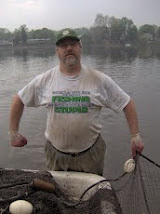BROTHER CAN YOU SPARE A
DIME?
We have three upcoming
international trips planned this year and wouldn’t you know it the money is
different in EVERY SINGLE PLACE.
Jeesh, how can you keep up with what to bring,
or how to spend your hard-earned shekels? Oops…wrong country.
It is easier now than
in years past. When I first traveled internationally for personal and work in
the 1980s there was different money for every country.
Liras in Italy, Francs in
France, different Francs in Belgium, and different Francs in Switzerland! German
Marks, Dutch Guilders, Finnish Markka, Norwegian Krones, Swedish Krona, Austrian
Schillings, Pesetas in Spain, Dinars in Yugoslavia, Drachmas in Greece, British
Pounds in the UK, Irish Pounds in Ireland, made travel without a calculator
impossible. It was complex, but now the Euro rivals the United States dollar in
the world stage of finances.
The Eurozone or the
European Union currently has 27 members and the Euro is the official currency for
19 countries, including our next destination, Spain.
Over the years most of our
travel has been to the UK and the Euro never came into play, although we used
the Euro for our beer-swilling vacation to Belgium in 2011 (so who knows WHAT we
spent), and on our sailing adventure in Costa Rica and Panama the onboard
expenses with the Greek-based Variety Cruises were tabulated in Euros. This was
quite helpful to have one currency because trying to figure out things in Costa
Rican Colons and Panamanian Balboas would have taken away the pleasure of such
a great trip.
On a side note, Panamanian
Currency is pegged to the U.S. dollar. In fact, in the bodegas of Panama City
you pay in U.S. dollars, and get your change back in Balboa coins.
Currently the Euro is
trading at $1.09 and has dropped a bit over the last few months, down from
$1.14 in February. Keep going I say, I want cheap beer in Tenerife!
Not all countries in Europe use the Euro. Traveling to Croatia in
2019 we definitely needed calculators to figure out the cost of things.
Currently, one HRK is worth .14 cents USD and 6.93 HRK make one dollar. We just
rounded everything up and let me tell you we over-tipped quite a bit. While in
Croatia we were told that the Kuna would soon be replaced by the Euro, but that
has not happened yet.
Our first international
vacation together was to sail from St. Lucia to Grenada and Janet labeled the
money in the Caribbean as Bongo Bucks!
Featuring the image of Queen Elizabeth
II, the Eastern Caribbean dollar is the official currency of 6 independent states
and two British Overseas Territories. It’s like play money, one XCD is worth
.37 cents!
As we are going to an
all-inclusive resort on Grenada, unless we go off the compound there will not
be a need to convert money. (You’re not supposed to tip, but sometimes we throw
a couple of dollars to greatly appreciated service). When we were in Antigua, I
spent an afternoon shopping and though the ATMs spit out bongo bucks, everyone
would take dollars.
Other island nations in
the Eastern Caribbean Currency Union include, St. Lucia and St. Vincent and the
Grenadines.
The Bahamas and Jamaica
also have their own currencies, The Bahamian dollar is pegged 1 to 1 with the
U.S. dollar, but in Jamaica you will not only need a calculator but all your
fingers and toes to figure out what things cost. Currently $100 USD is worth
15454 JMD, but American dollars are always readily accepted for tips.
GOING CRAZY IN THE
CANNIBAL ISLANDS
Yep, cannibalism was once
(stressing past tense) practiced in the Fiji Islands, but as this is an
article about money, we’re going to talk about having a good time without it
costing you an arm and a leg…literally.
The Fiji dollar or FJD
is currently trading at about .47 cents, so with the cost of a pint of domestic
beer around 6 FJD or about $2.93 it’s quite possible to go kooky in Korotogo
and nutty in Nadi, two of the popular tourism areas on the main island of Viti
Levu where we are staying before and after our cruise through the Yasawa
Islands northeast of Port Denarau.
Generally, Fiji is
considered a mid-range priced tourist destination and the white sandy beaches, year-round
tropical climate and the budget accommodations attract many Australians and New
Zealanders for family-friendly and romantic getaways. Scuba diving is very
popular here especially on the outer islands.
BULA
Of the three
international destinations planned for this year, perhaps Fiji is the most unique,
because of its distance from home and for traveling out of our comfort-zone. In
Spain, we’ll be immersed with English family members and the language barrier
won’t be a problem. In Grenada we will be insulated from the real world as we
bask in the TLC of Sandals. While English is the main language of Fiji, there
are a number or words and phrases we should learn, like “Bula”, which means
hello, and “Kerekere,” which means please. Here’s a quick guide to 10 Fijian Phrases
we should learn before traveling.
10 FIJIAN PHRASES TO LEARN
 |
| Heading to a Fiji BBQ |
I just wish I could
find how to say in Fijian: “What are you BBQing over there?” Just to be safe.
Wish us luck and thanks for reading!
Love Janet and greg
Love Janet and greg
© copyright 2022 by Greg Dunaj.





































No comments:
Post a Comment